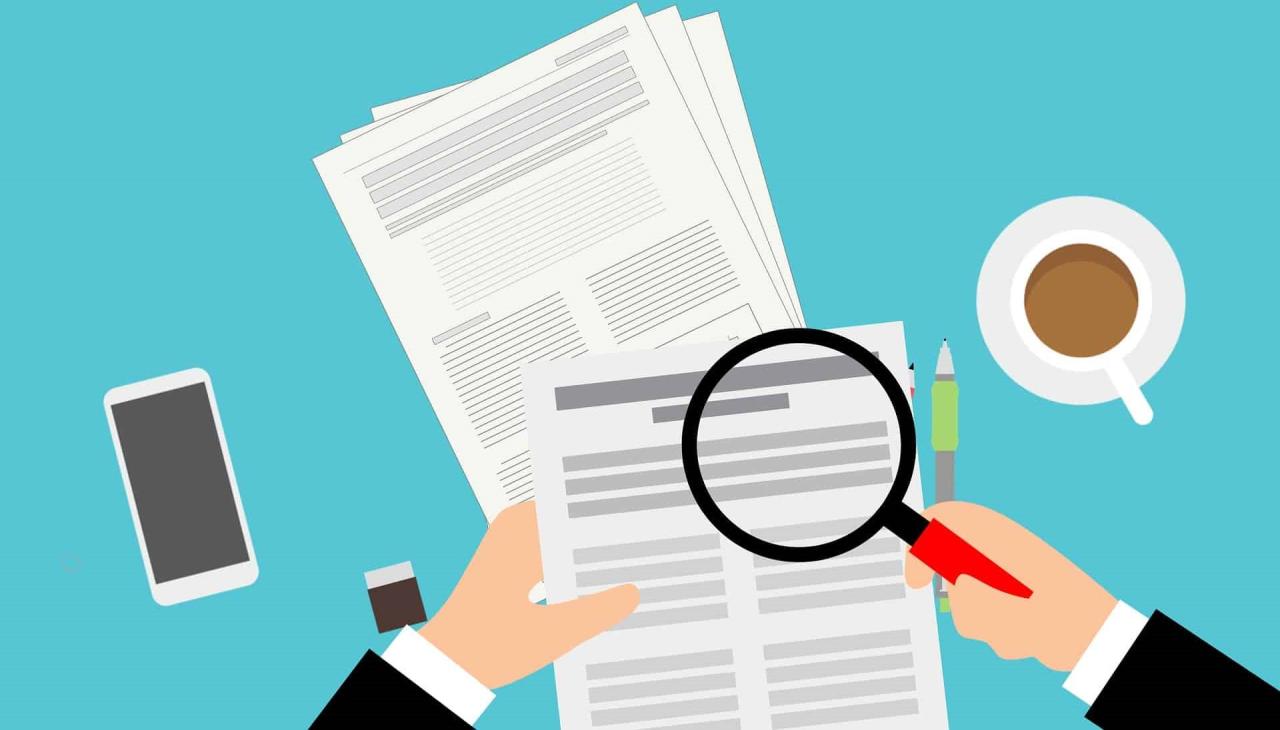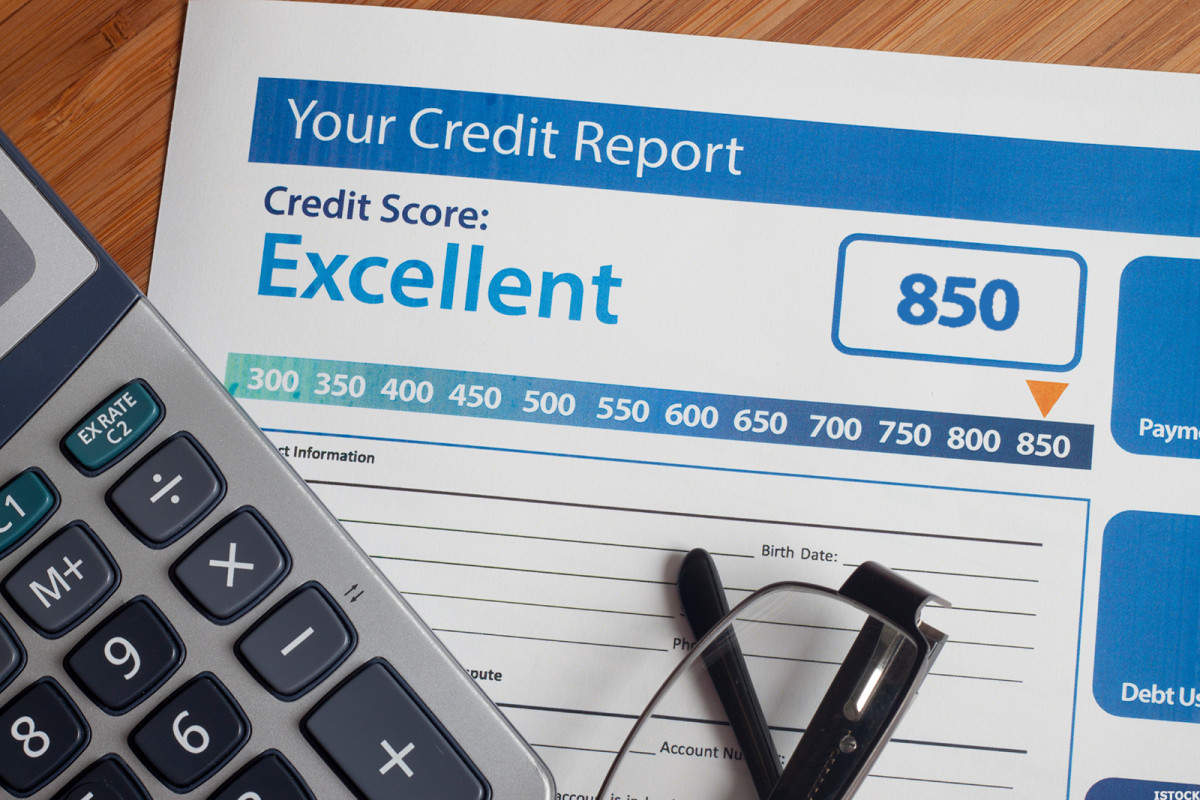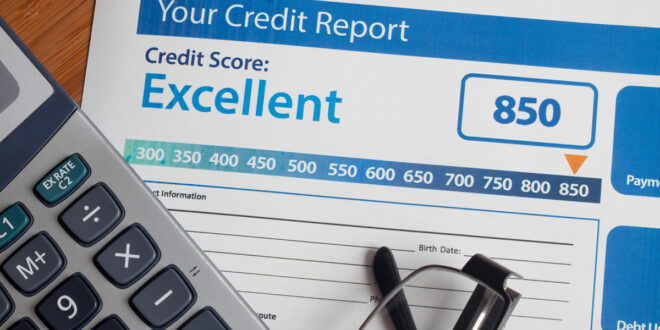Run a credit check on a business – it might sound daunting, but it’s a crucial step for anyone considering a business relationship. Whether you’re a supplier, investor, or simply a customer, understanding a company’s financial health can save you from potential headaches down the road.
Imagine partnering with a company that seems promising, only to discover later that they have a history of late payments or even bankruptcy. A credit check provides valuable insights into a business’s past performance, allowing you to make informed decisions and mitigate risk.
Why Run a Credit Check on a Business?
Understanding a business’s financial health is crucial when entering into any business relationship, whether it’s a partnership, a vendor agreement, or an investment. A credit check provides valuable insights into a business’s financial stability and its ability to meet its financial obligations.
Risks of Working with a Business with Poor Credit
Businesses with poor credit history pose significant risks to those who engage with them.
- Delayed Payments: Businesses with poor credit are more likely to delay payments, impacting your cash flow and potentially causing financial strain. For example, a supplier with a history of late payments may struggle to deliver goods or services on time, disrupting your operations and potentially leading to lost revenue.
- Increased Risk of Non-Payment: Businesses with poor credit are more likely to default on their obligations, leading to financial losses. If you extend credit to a business with a poor credit rating, there’s a higher chance they won’t repay their debts, leaving you with significant financial burdens.
- Legal Issues: Working with a business with poor credit could expose you to legal issues. If the business files for bankruptcy, you may have difficulty recovering your outstanding payments, potentially leading to costly legal battles and financial losses.
Benefits of Running a Credit Check
Running a credit check before entering into a business relationship offers several benefits:
- Reduced Risk: By understanding a business’s credit history, you can assess the risks involved and make informed decisions about whether to proceed with the relationship. This helps mitigate the potential for financial losses and legal issues.
- Improved Negotiation: A credit check provides valuable information that can be used during negotiations. You can leverage this information to secure better payment terms, establish clear payment schedules, or request collateral to minimize financial risk.
- Enhanced Business Relationships: By demonstrating due diligence through a credit check, you build trust and transparency in business relationships. This can lead to stronger partnerships, smoother transactions, and a more favorable business environment.
Types of Business Credit Checks
When assessing a business’s creditworthiness, understanding the different types of credit checks available is crucial. Each type offers unique insights into a business’s financial health, and choosing the right one depends on your specific needs and objectives.
Business Credit Reports
Business credit reports are comprehensive summaries of a company’s credit history. They are compiled by credit reporting agencies like Dun & Bradstreet, Experian, and Equifax. These reports provide valuable information about a business’s:
- Payment history: This section details how consistently the business has paid its bills on time, including any late payments or defaults.
- Credit lines and balances: This section Artikels the amount of credit available to the business and the current outstanding balances.
- Public records: This section includes any legal judgments, bankruptcies, or liens against the business.
- Business information: This section provides basic details about the company, such as its name, address, phone number, and industry.
Trade Credit Reports
Trade credit reports are specifically focused on a business’s payment history with suppliers and vendors. These reports are often generated by private companies like D&B or industry-specific reporting agencies. They offer a more granular view of a business’s payment habits within its supply chain.
- Trade payment history: This section details the business’s payment history with specific suppliers and vendors, including payment terms and any outstanding invoices.
- Payment performance: This section may provide a score or rating based on the business’s overall payment performance.
- Industry-specific information: Some trade credit reports include industry-specific data, such as the average payment terms for businesses in the same sector.
Financial Statements
Financial statements are official documents that provide a detailed overview of a business’s financial position. They are usually prepared annually and can be accessed through public databases or directly from the company. Financial statements can offer insights into a business’s:
- Revenue and expenses: These statements detail the company’s income and costs, providing a picture of its profitability.
- Assets and liabilities: These statements Artikel the company’s possessions and debts, providing a snapshot of its financial health.
- Cash flow: These statements track the movement of cash into and out of the business, providing insights into its liquidity.
Factors to Consider When Choosing a Credit Check
When selecting the appropriate credit check, several factors are crucial:
- Purpose of the credit check: Are you assessing a potential business partner, extending credit, or conducting due diligence for an investment? The purpose will determine the type of information needed.
- Industry and size of the business: Different industries and business sizes have varying credit reporting practices.
- Budget and time constraints: Different credit checks have varying costs and turnaround times.
How to Run a Credit Check on a Business

Obtaining a business credit report is a crucial step in assessing a company’s financial health and creditworthiness. By understanding the process and accessing the right resources, you can make informed decisions regarding your business relationships.
Steps to Obtain a Business Credit Report
To obtain a business credit report, follow these steps:
- Choose a Credit Bureau: Begin by selecting a reputable credit bureau that specializes in business credit reporting. Some well-known options include Dun & Bradstreet (D&B), Experian, and Equifax. Each bureau has its own reporting methodology and data sources, so consider your specific needs when making your choice.
- Gather Necessary Information: Before you can request a report, you’ll need to provide essential details about the business you’re investigating. This typically includes the company’s legal name, address, and sometimes its tax identification number (TIN) or Employer Identification Number (EIN).
- Submit Your Request: Once you have the necessary information, you can submit your request through the credit bureau’s website, by phone, or via mail. The specific method may vary depending on the bureau you’re using. Some bureaus offer online services that allow you to access reports instantly, while others may require you to contact them directly.
- Review the Report: After your request is processed, you’ll receive the business credit report. Carefully review the information provided, paying attention to factors such as payment history, credit limits, outstanding debt, and any public records. Understanding these elements will help you assess the company’s overall creditworthiness.
Interpreting Business Credit Report Data: Run A Credit Check On A Business

Understanding a business credit report is crucial for evaluating a company’s financial health and risk profile. It provides a comprehensive picture of a business’s credit history, allowing you to make informed decisions about extending credit or entering into business partnerships.
Key Components of a Business Credit Report
A business credit report typically includes several key components that provide insights into a company’s financial performance and creditworthiness. These components are:
- Payment History: This section reflects the business’s track record of paying its bills on time. It includes information about late payments, missed payments, and any instances of default. A consistent history of on-time payments indicates financial discipline and reliability, while a history of late or missed payments raises concerns about the business’s ability to manage its finances.
- Credit Limits: This section details the credit lines extended to the business by various lenders. It includes information about the total amount of credit available, the amount currently used, and the credit utilization ratio. A high credit utilization ratio, which is the percentage of available credit being used, can indicate financial strain and a higher risk of default. A low credit utilization ratio suggests a healthy financial position and responsible credit management.
- Public Records: This section includes information about any legal actions taken against the business, such as lawsuits, bankruptcies, or liens. Public records can indicate financial difficulties or legal issues that may impact the business’s ability to repay its debts. A clean public record suggests a financially stable and legally compliant business.
- Inquiries: This section shows the number of credit inquiries made by lenders on the business’s credit report. A high number of inquiries can indicate that the business is actively seeking new credit, which could be a sign of financial difficulties or an attempt to manage existing debt. However, inquiries can also be made for legitimate reasons, such as applying for a business loan or credit card.
Analyzing Business Credit Report Data
Analyzing a business credit report involves assessing the various components and understanding their implications for the business’s creditworthiness. Here’s a step-by-step approach:
- Review Payment History: Start by examining the business’s payment history. Look for any patterns of late or missed payments, and assess the severity and frequency of these instances. A history of consistent on-time payments is a positive indicator, while a history of late or missed payments should be investigated further.
- Assess Credit Limits and Utilization: Analyze the credit limits extended to the business and the current credit utilization ratio. A high credit utilization ratio can indicate financial strain, while a low ratio suggests responsible credit management. Compare the business’s credit limits and utilization to industry averages to get a better understanding of its financial health.
- Examine Public Records: Carefully review the public records section for any legal actions taken against the business. If there are any lawsuits, bankruptcies, or liens, investigate the nature and severity of these issues. A clean public record is a positive indicator, while any legal issues should be carefully evaluated.
- Consider Inquiries: Assess the number of credit inquiries on the business’s report. A high number of inquiries can indicate financial difficulties or an attempt to manage existing debt. However, inquiries can also be made for legitimate reasons, such as applying for a business loan or credit card. Consider the timing and context of the inquiries to understand their significance.
- Compare to Industry Benchmarks: Compare the business’s credit report data to industry benchmarks to get a more comprehensive view of its creditworthiness. This comparison can help you identify any potential red flags or areas of concern. Industry benchmarks can be found from various sources, including credit reporting agencies and financial institutions.
Credit Scores and Their Meanings
Credit scores are numerical representations of a business’s creditworthiness. They are calculated based on the information in the business credit report, including payment history, credit limits, and public records. Here’s a table outlining the different credit scores and their respective meanings:
| Credit Score Range | Meaning |
|---|---|
| 750 – 850 | Excellent credit, indicating a very low risk of default. |
| 670 – 749 | Good credit, indicating a low risk of default. |
| 580 – 669 | Fair credit, indicating a moderate risk of default. |
| 300 – 579 | Poor credit, indicating a high risk of default. |
Using Credit Check Information for Decision Making
A business credit check provides valuable insights into a company’s financial health and history. This information can be used to make informed decisions about various business activities, such as extending credit, entering into partnerships, and investing.
Credit Check Data for Business Decisions
Business credit checks can inform various business decisions by providing insights into a company’s financial history and current standing. This data can be used to assess risk and make informed decisions about:
- Extending Credit: Credit checks help assess a company’s ability to repay its debts. A strong credit score indicates a lower risk of default, making it more likely for businesses to extend credit to the company. Conversely, a weak credit score may prompt businesses to decline credit requests or require stricter terms.
- Entering into Partnerships: A company’s creditworthiness can influence the decision to enter into a partnership. Partners typically seek reliable and financially stable businesses to ensure a successful collaboration. A strong credit score can enhance a company’s credibility and attractiveness as a potential partner.
- Investing: Investors often use credit checks to assess the financial health of companies before making investment decisions. A strong credit score suggests a company’s financial stability and its ability to generate returns, making it a more attractive investment opportunity.
Credit Checks in Risk Assessment and Mitigation
Credit checks play a crucial role in risk assessment and mitigation by providing valuable information about a company’s financial history and current standing. This data can be used to:
- Identify Potential Risks: Credit checks can highlight potential risks associated with a company, such as a history of late payments, bankruptcies, or legal judgments. This information helps businesses make informed decisions about extending credit or entering into partnerships.
- Quantify Risk Levels: Credit scores provide a numerical representation of a company’s creditworthiness, allowing businesses to quantify the level of risk associated with extending credit or investing in the company. This quantitative data can help businesses make more informed decisions and mitigate potential losses.
- Develop Risk Management Strategies: Credit check data can be used to develop risk management strategies, such as setting credit limits, requiring collateral, or implementing stricter payment terms. These strategies help businesses mitigate potential losses and ensure financial stability.
Actions Based on Credit Report Findings
The actions taken based on a credit report can vary significantly depending on the findings. Here’s a list of potential actions based on different credit report findings:
- Strong Credit Score:
- Extend credit with favorable terms.
- Enter into partnerships with confidence.
- Consider investing in the company.
- Moderate Credit Score:
- Extend credit with more cautious terms, such as shorter payment terms or higher interest rates.
- Proceed with partnerships with caution, potentially requiring additional due diligence or safeguards.
- Evaluate the investment opportunity carefully, considering potential risks and returns.
- Weak Credit Score:
- Decline credit requests or require stricter terms, such as a higher down payment or a personal guarantee.
- Avoid entering into partnerships with the company.
- Do not invest in the company.
Legal Considerations
Running a credit check on a business can be a powerful tool, but it’s crucial to do so within the boundaries of the law. The Fair Credit Reporting Act (FCRA) is a federal law that governs the collection, use, and disclosure of consumer credit information. It’s important to understand its implications when it comes to business credit checks.
Fair Credit Reporting Act (FCRA)
The FCRA Artikels specific guidelines for accessing and using business credit information. It’s designed to protect individuals and businesses from unfair or inaccurate reporting practices. Here are some key provisions of the FCRA that apply to business credit checks:
- Purpose of Use: You must have a legitimate business reason for obtaining a business credit report. This means the information you gather must be used for a specific, permissible purpose, such as:
- Extending credit
- Evaluating employment applications
- Assessing insurance risks
- Verifying information provided by a business
- Disclosure and Consent: You must inform the business you’re checking about the credit check and obtain their consent before proceeding. This includes informing them of the credit reporting agency you’ll be using and the purpose of the check.
- Accuracy of Information: The FCRA requires credit reporting agencies to maintain accurate and up-to-date information. If you find inaccuracies in a business credit report, you can dispute them with the credit reporting agency.
- Confidentiality: You must keep the information you obtain from a business credit report confidential and use it only for the intended purpose. Sharing it with unauthorized parties or using it for other purposes is a violation of the FCRA.
Obtaining Consent
Obtaining consent before running a credit check is a crucial step in complying with the FCRA. This consent should be in writing and clearly state:
- The identity of the business being checked
- The purpose of the credit check
- The name of the credit reporting agency being used
- The business’s right to access their credit report
Consequences of Violating FCRA Regulations, Run a credit check on a business
Violating FCRA regulations can have serious consequences, including:
- Civil Penalties: The FCRA allows for significant civil penalties for violations, which can reach up to $1,000 per violation.
- Criminal Penalties: In some cases, FCRA violations can result in criminal charges, particularly if the violation involves willful intent to deceive or defraud.
- Reputational Damage: Violating the FCRA can damage your reputation and make it difficult to do business with others.
- Legal Action: Businesses whose credit information is mishandled have the right to sue for damages.
Final Conclusion

Running a credit check on a business isn’t just about protecting yourself; it’s also about fostering trust and transparency in the business world. By understanding a company’s financial standing, you can build stronger relationships, make more informed decisions, and ultimately, achieve greater success.
Quick FAQs
What information is included in a business credit report?
Business credit reports typically include information about a company’s payment history, credit limits, public records, and other financial details.
How can I access a business credit report?
You can obtain business credit reports from credit bureaus like Dun & Bradstreet, Experian, and Equifax. Some industry-specific databases also provide credit information.
What are the legal implications of running a credit check on a business?
The Fair Credit Reporting Act (FCRA) governs the use of credit information. It’s essential to obtain consent before running a credit check and to use the information responsibly.
Is it possible to improve a business’s credit score?
Yes, businesses can improve their credit scores by making timely payments, managing credit limits effectively, and addressing any negative information on their reports.
 Norfolk Publications Publications ORG in Norfolk!
Norfolk Publications Publications ORG in Norfolk!

